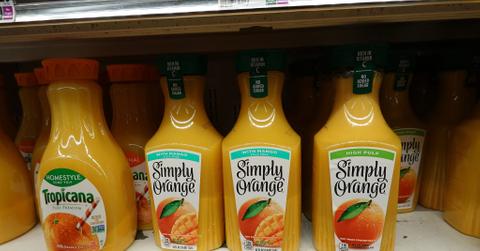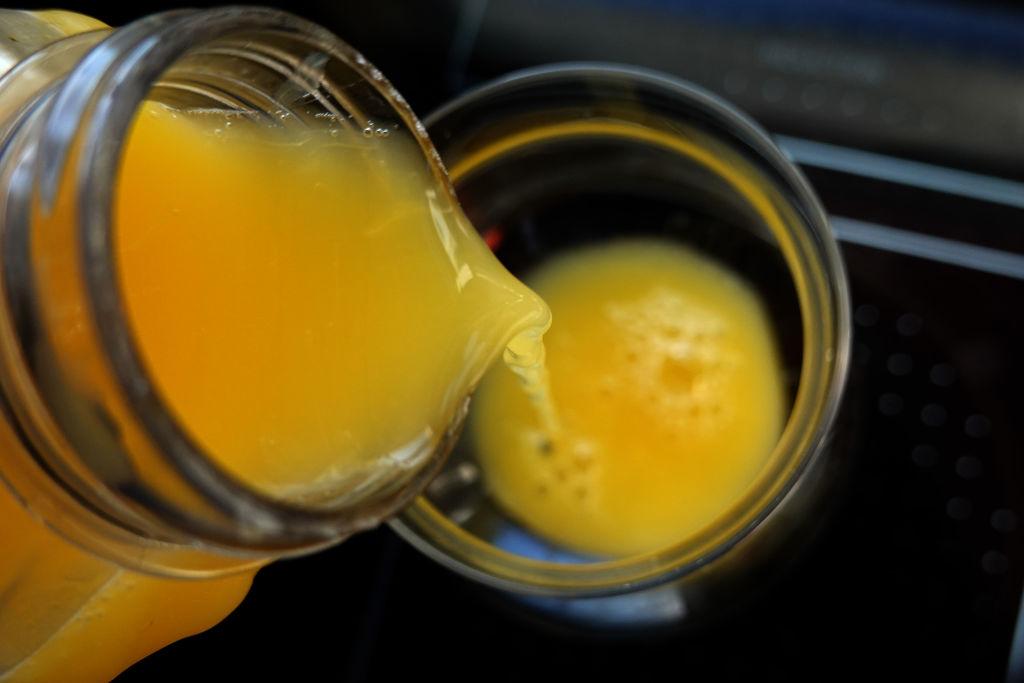The Simply Orange Class Action Lawsuit Has Been Dismissed — Why That Isn't Necessarily the End
A 2023 class action lawsuit against Coca-Cola Company alleged that Simply Orange product "Simply tropical drink" contained PFAS.
Updated Oct. 23 2024, 4:01 p.m. ET

PFAS have been making headlines, but not in a good way. PFAS, aka forever chemicals, are making their way into everything, from the food products we consume to the water we drink.
The problem has even resulted in legal action, including the Simply Orange juice lawsuit.
Keep reading to learn more about the case, what to do if you have purchased the specific Simply Orange product in question, and the potential impacts of PFAS.
Here’s what you should know about the Simply Orange lawsuit, which puts Simply Tropical juice on trial:

According to Top Class Actions, the plaintiff, Joseph Lurenz, ordered testing on Simply Tropical juice. The testing revealed that a product from Simply Orange — Simply Tropical juice — contained PFAS, a large group of toxic "forever" chemicals that have the potential to cause harm to human health. This is obviously very contradictory to Simply Orange’s advertising that says the juice is “all natural.”
The lawsuit, filed in December 2022, argues that the presence of these unnatural chemicals makes the advertising misleading — many phrases used by the company might give consumers the impression that any impurities would be removed. The plaintiff is suing Simply Orange and its parent company Coca-Cola for “fraud, unjust enrichment, and violating warranty and New York consumer laws,” as reported by EcoWatch.
However, in an update from July 2024, per the Lawsuit Information Center, a judge dismissed the case, citing a lack of evidence. Specifically, Lurenz claimed he had independent testing conducted on a sample of Simply tropical juice, but did not test the product he purchased.
However, litigation might not be entirely over. Lurenz can amend his complaint and add additional evidence or arguments to support his claim. If his lawyers can prove that the products he purchased contain PFAS and the contamination is widespread, the class action suit might continue.

What to do if you’ve purchased Simply Tropical Juice:
If you’ve purchased the product recently, you can call the company to make a complaint and advocate for more transparency.
If you haven’t purchased Simply Tropical juice, it might be best to avoid it altogether — that’s up to you, of course. PFAS are being found in many different products, and there’s no guarantee that different juice brands are free of these harmful chemicals.
Was there a Simply Orange juice recall?
No, Simply Orange has not recalled Simply Tropical or any other products in relation to this lawsuit.
“We stand by the quality of our products,” Simply Orange said in a Jan. 19, 2023 statement in response to the suit, as per The Miami Herald.
Why are PFAS bad?
The looming presence of these chemicals creates many widespread problems for both environmental and human health.
Exposure to a high level of PFAS can lead to various health issues, some of which are severe. According to the Centers for Disease Control and Prevention (CDC), potential effects could include high cholesterol levels, a decreased vaccine response in children, lower infant birth weights, changes in liver enzymes, and an increased risk of kidney or testicular cancer. Additional research is needed to learn more about how exposure can impact humans.
As for the environment, the outlook isn’t much better. PFAS have made their way into our soil and water sources — these chemicals can even bioaccumulate in fish and other wildlife, the CDC explained. They don’t break down in the environment either, which is another huge point of concern.
Figuring out how to remove or destroy PFAS is proving to be tricky. The chemicals have extremely strong bonds, making them difficult to destroy, according to NBC News. While this process is nearly impossible, it’s not totally out of the question — researchers have found ways to achieve the desired results, but there’s still a lot of work that has to be done in order to make the method entirely effective.
As more people learn about the consequences of PFAS and testing improves, it’s likely that these lawsuits will become even more common. In the meantime, here are tips for avoiding excessive PFAS exposure.
This article, originally published on April 13, 2023, has been updated.
